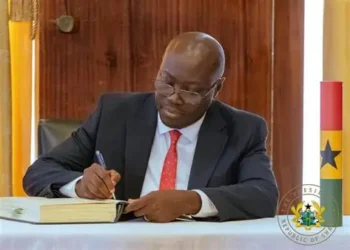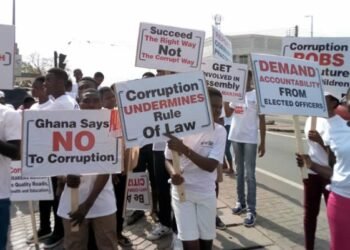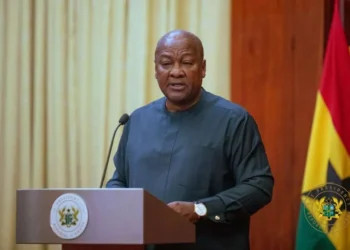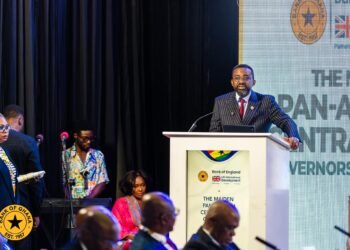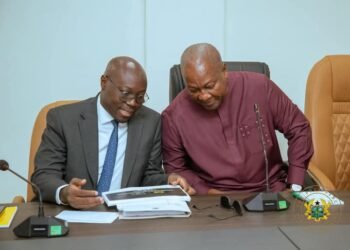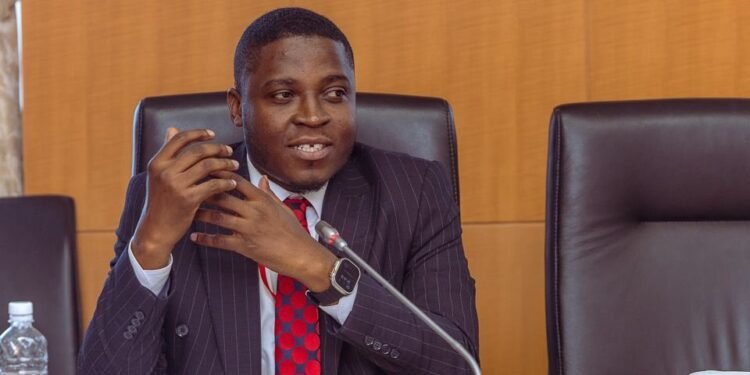Samuel Okudzeto Ablakwa, Minister for Foreign Affairs, after a meeting with Eyerusalem Fasika, the Country Manager of the African Development Bank (AfDB), has revealed a US$ 70 million grant approved by AfDB for the empowerment and development of Northern youths.
The Minister declared that the approved grant will be directed to support youth enablement projects in the five Northern regions of Ghana.
According to the Hon. Ablakwa, the perimeter of the endowment is to provide specific, regulated, and beneficial programs for the Northern part of the country. The programs will focus on young males and females who are unemployed. The young people will be equipped with skills, training, resources, and opportunities to improve their economic lives.
He emphasized that the large-scale investment will provide economic empowerment and a multifaceted impact on the targeted group and the national economy as a whole.
Multifaceted Impact of the Initiative
There are growing concerns about the rising unemployment in Ghana, especially in the rural regions of the country. Governments’ focus on rural development through projects and infrastructure programs is most laudable. The impact of the AfDB-sponsored program on the people in the Northern part of Ghana has numerous benefits to individuals, households, communities, and the broader economy.

The number of young people, especially women, who travel from the Northern part of Ghana to the South for green pastures is significant. Development in these regions would encourage them to stay home and avoid the harsh living conditions they endure down in the South.
The purpose of the grant is to offer skills development in basic, soft, market, and technical skills. This will improve the skills of the young people to meet the available and innovative job opportunities that can be seen and created in Northern Ghana.
Incomes, financial stability, and well-being of the people in the North will be improved through the successful implementation of the program. The initiative will also ensure social inclusion to create a sense of empowerment, self-worth, confidence, and financial independence. These marginalized regions that are limited to farming can have alternative means to improve living standards.
Sole and partnered entrepreneurships will be supported through business training, mentorships, and startup funds. As the program is finalized and specified by the Minister, these would be achieved directly or indirectly to increase living standards and regional welfare.

In broader sense, the national youth unemployment will be reduced as respective projects take off and idle energies become active. The country’s productivity, innovation, and output will be fostered, while unemployment is reduced and economic growth is enhanced.
National and regional planners will be able to effectively plan urban regions when the population density is reduced in the South. The effective execution of the project will mitigate rural-urban migration and ensure balanced regional development. Consequently, the impacted regions and lives would contribute to Ghana’s economy as career paths and income flows become stable. This government program would deliver and strengthen sustainable labor market programs.
AfDB Partnership with Ghana
The AfDB has been one of Ghana’s development allies for years. The bank has offered support to Ghana for various developmental projects in the past. In May 2022, for instance, AfDB signed a US$ 70 million agreement with Ghana for solar electrification.

According to Mr. Ablakwa, the Country Manager of the African Development Bank, at the meeting committed to support President Mahama’s flagship development initiatives, including the Big Push Project, the 24-Hour Economy initiative, the Feed Ghana Program, and the One-Million Coders Program. She acknowledged that the successful implementation of these projects would propel Ghana into infrastructure development, economic growth, and macroeconomic stability.
The AfDB remains staunch to ongoing road projects such as the Lagos–Abidjan Road Network and the Eastern Corridor Project, the Hon. Minister mentioned. He added that these major roads pass through parts of the Volta Region, including his constituency.
Mr. Ablakwa further revealed that the AfDB has plans to invest in active projects across the country. This investment would cover youth development, agriculture, infrastructure, social support, and healthcare to the tune of US$ 600 million. He reiterated that more development projects lie ahead as Ghana’s partnership with AfDB grows stronger.
The government, however, is urged to be judicious, circumspect, and transparent in dispensing the grant for various projects in the Northern regions. Alongside the other investments in the various sectors of the economy undertaken this year, a transformed Ghana is expected in the next few years. These investments, rooted in a recovering and stable economy, should go beyond statistics to real economic impact.
READ ALSO: Africa’s Agribusiness Success Hinges on Research and Industry Alignment – AAC CEO





